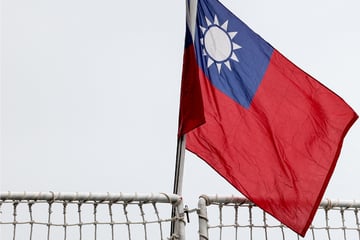Indigenous leaders slam Canadian police's violent raid on Wet'suwet'en land defenders
Gidimt'en Checkpoint, Canada - Indigenous leaders are speaking out after yet another violent raid on their sovereign territory, with five Wet'suwet'en people arrested for defending their lands from powerful Canadian fossil fuel interests.
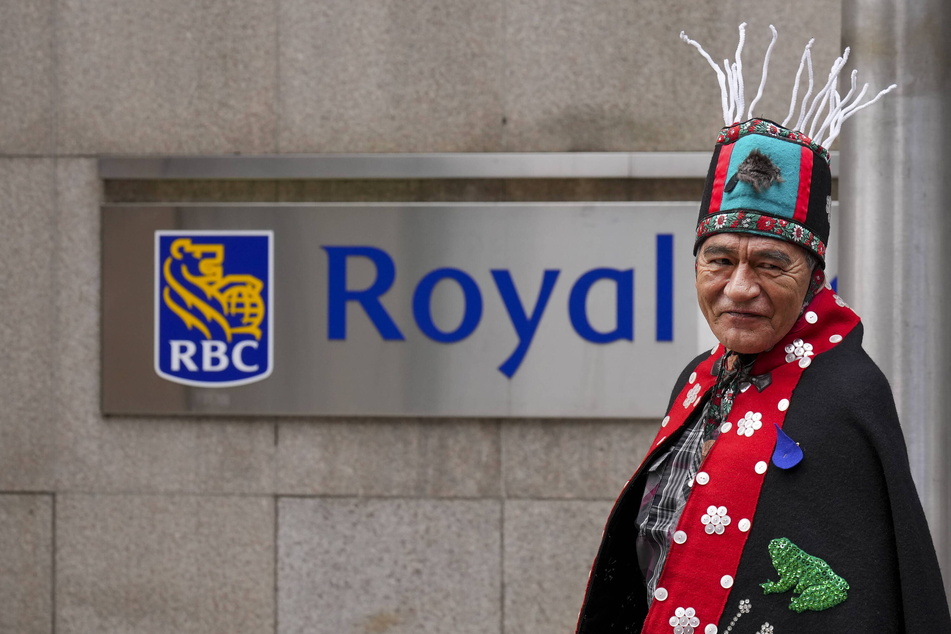
More than a dozen police vehicles and officers from the Community-Industry Response Group (C-IRG) of the Royal Canadian Mounted Police (RCMP) converged on the Gidimt'en Checkpoint on Wednesday to raid a camp located on traditional Wet'suwet'en territory in what is now known as the province of British Columbia.
"They've done three raids on us," Chief Na'Moks, hereditary leader of the Tsayu, one of the Five Clans of the Wet'suwet'en Nation, told TAG24 NEWS. "Usually, it's between 100 and 200 C-IRG members. They come in squad gear, with the full uniform, the dogs, the helicopters, the snipers. They burned down our cabins. They smashed down our cabins."
In the latest incident, two Indigenous men and three Indigenous women were arrested, including Gidimt'en Chief Woos' daughter, who had strap ties wrapped around her wrists so tightly that she lost blood circulation in her hands. Another man was placed in handcuffs and thrown face-first on the ice.
A search warrant issued ahead of the raid references the alleged theft of a chainsaw, olive-colored masks, and brown fatigues – accusations Indigenous people have flatly rejected.
"Why would our people want a power saw?" questioned Chief Na'Moks. "There was no reason for C-IRG to be out there to look for power saws that we already have."
He went on to pose the even more fundamental question: "How can we be thieves on our own land?"
Wet'suwet'en people resist construction of natural gas pipeline on their lands
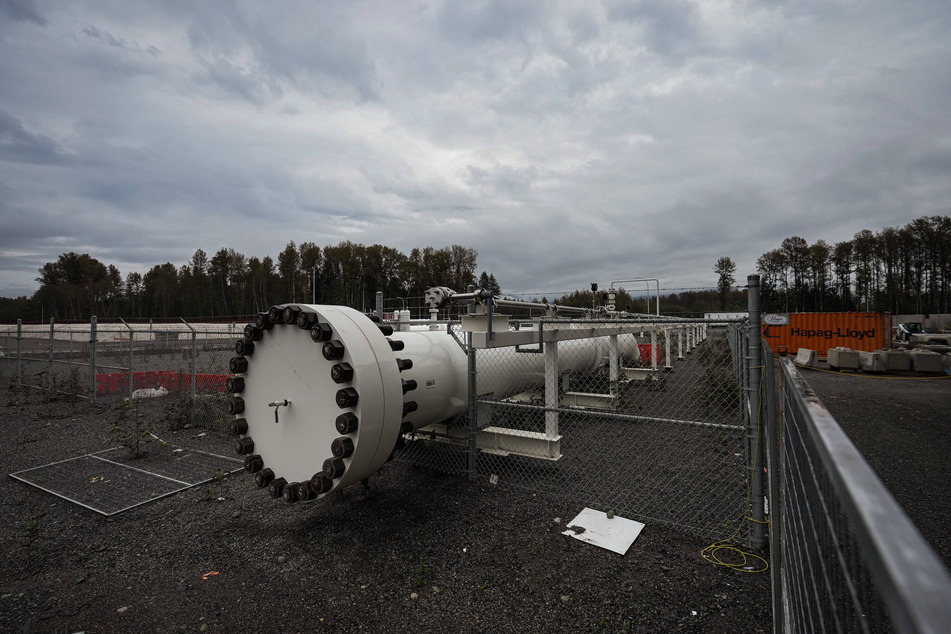
According to Chief Na'Moks and other leaders, the raid on their camp forms part of a much larger pattern by C-IRG and Canadian authorities, who they say place the profits of large fossil fuel companies over the basic rights of Indigenous peoples.
The dispute at Gidimt'en centers around the ongoing construction of TC Energy's Coastal GasLink natural gas pipeline through Wet'suwet'en land, a project the hereditary leaders and their people have ardently opposed.
The Coastal GasLink pipeline is expected to produce the equivalent of an estimated 585.5 million pounds of CO2 a day, with its product largely slated for export to Asian markets. The costs to build the pipeline were initially reported at 6.6 billion Canadian dollars but are now projected to exceed 20 billion.
If allowed to go forward, the project would have a devastating impact on Indigenous peoples' health and environment, including on the salmon populations and clean water sources Wet'suwet'en people rely on to sustain themselves. The increase in CO2 emissions would also accelerate the global climate emergency.
The Indigenous people at Gidimt'en say they have seen their homes and possessions destroyed while peacefully resisting C-IRG intrusion on their lands. That's why Indigenous leaders wanted to be present to observe what Canadian authorities were doing when they once again arrived armed on Wednesday.
"Three of our ladies and two men arrested for simply wanting to make sure no more damage happens," Chief Na'Moks lamented after returning home from the site of the raid in the early hours of Thursday.
"All we want is clean water, clean air, our right to exist on our lands," he insisted.
Wet'suwet'en people fight for recognition of their sovereignty
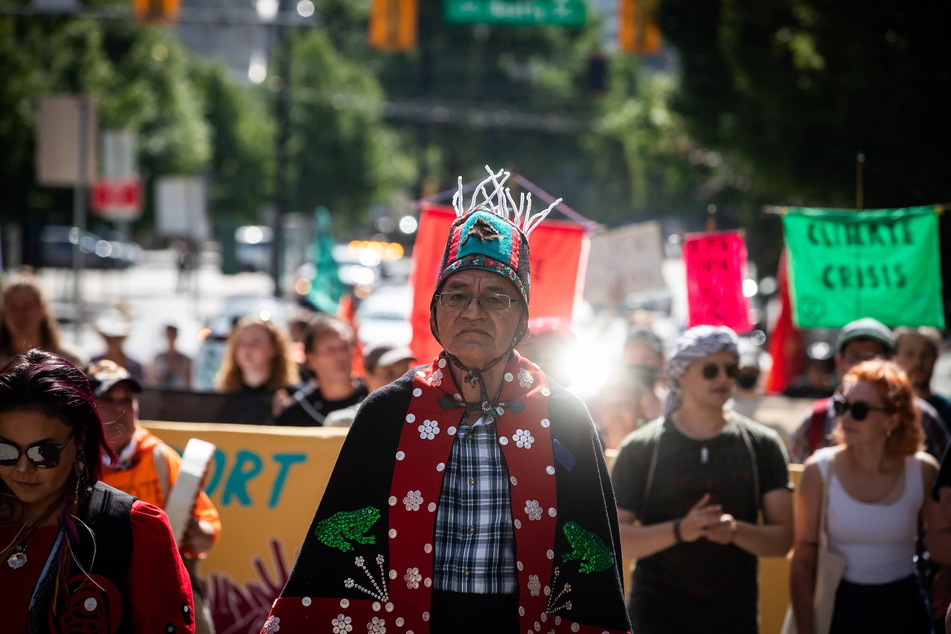
The Wet'suwet'en people never ceded their land to the government of Canada or British Columbia, a fact that has been repeatedly upheld even by the Canadian Supreme Court.
In the 1997 Delgamuukw v. British Columbia decision, the Canadian Supreme Court ruled that the Gitxsan and Wet'suwet'en peoples, represented by their hereditary leaders, still have the title to their lands, which stretch across more than 8,400 square miles of British Columbia.
A 2020 Memorandum of Understanding with the governments of Canada and British Columbia affirmed the Wet'suwet'en heredity system as "a legitimate government with title" to those traditional lands.
Nevertheless, Canadian law enforcement agencies and financial institutions have targeted Indigenous people protecting their own lands.
"They speak about China interfering in elections, but they do not speak about this moral and economic madness of destruction that is happening in this Canadian state," said Secwépemc elder Alice Aby, whose traditional name is Ekanaawaaki. "It's all focused on our land protectors, our water protectors, and our Indigenous populations who have never, never ceded their territories to any government, local or foreign."
"In this country, they only talk about the financial deficit. They should be starting to talk about the moral deficit," Chief Na'Moks agreed.
Wet'suwet'en people call for support from the international community
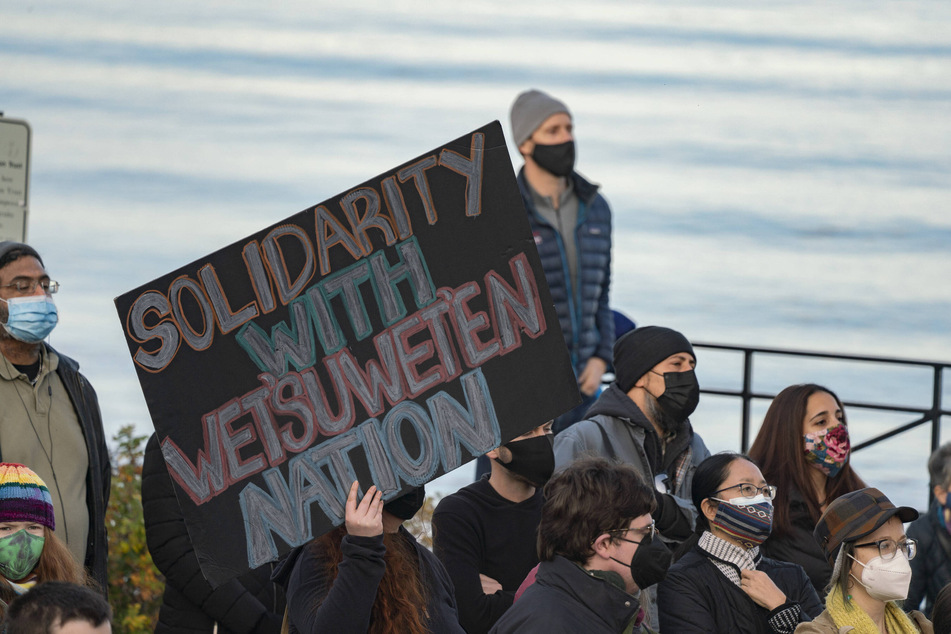
Following the violent raid, Indigenous leaders are once again appealing to the United Nations (UN) and the international community to support them in their fight against Canadian colonial exploitation.
The RCMP action took place just two weeks after a UN rapporteur visited Canada and met with Wet'suwet'en traditional leaders. It also comes amid a growing awareness in UN institutions of the grave threat posed by Western governments that continue to invest in fossil fuel extraction.
Ambassador Ronald Barnes, who represents Indigenous peoples in Alaska at the UN, held an intervention in Geneva, Switzerland, on Thursday to decry the raid on the Wet'suwet'en people before the 52nd Human Rights Council.
In his remarks, Barnes highlighted the UN's responsibility under international law toward sovereign Indigenous peoples, as agreed in numerous declarations and resolutions, and argued that Canada's continued political and economic subjugation of the Wet'suwet'en Nation constitutes an apartheid system of oppression.
"The Wet'suwet'en traditional territory was raided by the Coastal GasLink mercenaries, a branch of the Royal Canadian Mounted Police, on behalf of Canada yesterday. Canada manufactures consent through statutory or puppet government institutions despite that the 1997 Delgamuukw case recognizes traditional government authority," Barnes said in his testimony.
"We ask the Human Rights Council and its bodies to address the grave violations of rights based on legislation and violations of international law."
Indigenous leaders on the ground also echoed the ambassador's call for action. "When is the UN going to open their doors so we can have some collaboration for our people – Indigenous people globally – because it's our global Mother Earth, our planet, that's in crisis?" Aby asked.
"The narrative is being steered by the government and the RCMP. They call us the 'Indian problem,' but I don't think we are the problem. I think we are part of the solution," Chief Na'Moks added.
Cover photo: IMAGO / ZUMA Press
